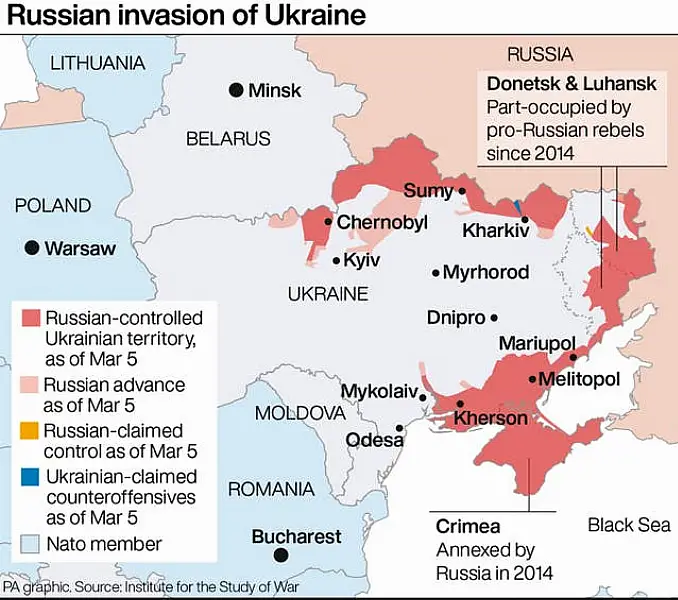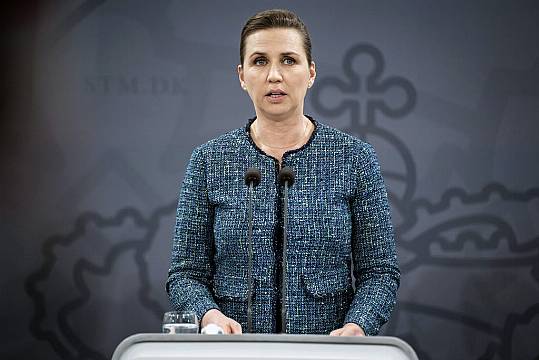Denmark will hold a referendum in June on whether to join the European Union’s defence pact and scrap the Nordic country’s 30-year-old opt-out from the bloc’s common security and defence policies.
Danish Prime Prime Minister Mette Frederiksen said that “historical times call for historical decisions”, in relation to Russia’s invasion of Ukraine.
Russian President Vladimir Putin “has heralded a new time, a new reality. Ukraine’s struggle is not just Ukraine’s. We stand together in Europe,” Frederiksen told a news conference in Copenhagen.

The referendum on joining the EU’s Common Security and Defence Policy, or CSDP, will take place on June 1.
“It is now that everyone in the Western world must make up their minds,” Ms Frederiksen said when asked by reporters why such drastic a change in Denmark’s security policies vis-a vis the EU was necessary right now.
“Ukraine is the difference. A free, democratic country is under attack from Russia,” she said, adding that parties represented in her government were all supporting the referendum and related measures.
Denmark would also boost military spending to meet the Nato target of 2% of gross domestic product by 2033, Ms Frederiksen said.
Denmark has certain historical opt-outs from the EU’s common policies. Those include reservations related to the EU’s common defence, single currency — the euro, which it does not use — and judicial cooperation.
The defence reservation means Denmark does not attend EU meetings when military operations are discussed under the bloc’s auspices.
Denmark’s defence reservation has existed since 1992 when a majority of Danes voted no to the Maastricht Treaty that established the present day European Union.
Denmark joined the European Communities, the predecessor of the EU, in 1973. It is one of the founding members of Nato, which was established in 1949.







